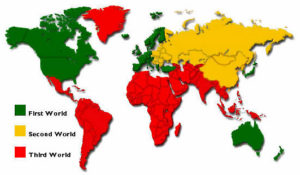

This argument is discredited by several events that have prior and after the publication of the idea. Huntington claims that the future battle line will be the fault lines between civilizations. Huntington believes that the new changes after the Cold War are likely to result in the clash of civilization. Read also In What Way Might Existence Be a Perfection? – Descartes’ Ontological Argument Defending Huntington’s Argument’s Plausibility or Rational Defensibility – Why does he believe that the organization of conflict will increasingly follow cultural-religious divisions? To maintain peace and coexistence, the Western should accept the new world order and stop imposing their form of civilization to other groups of civilization (Huntington, 1993). In Huntington’s view, no form of civilization will manage to gain enough power to rule the world. Huntington also predicts that there will be civilization conflict between different civilization groups which will happen along the cultural fault lines separating the civilizations (Krifko, n.d.). This identity will be influence by unique culture, language, religion, and traditions. The civilization groups include African, Western, Latin American, Confucian, Slavic Orthodox, Japanese, Hindu, and Islamic civilization (Huntington, 1993).Įvery group of civilizations will focus on building their own identity that makes it unique from the rest. This will result in the development of eight civilizations that are ruled by people’s culture. Huntington argues that the end Cold War results in a new era where there is no universal civilization or universal power that holds groups of countries together. The world was divided into two main groups based on the ideology that the country embraces, apart from sub-Sahara Africa that was not in any of the two.

According to Huntington, during the Cold War era, the world was ruled by two main ideologies of communism and capitalism. In the article and presentation, Huntington focuses on the change of world civilization after the Cold War.


 0 kommentar(er)
0 kommentar(er)
